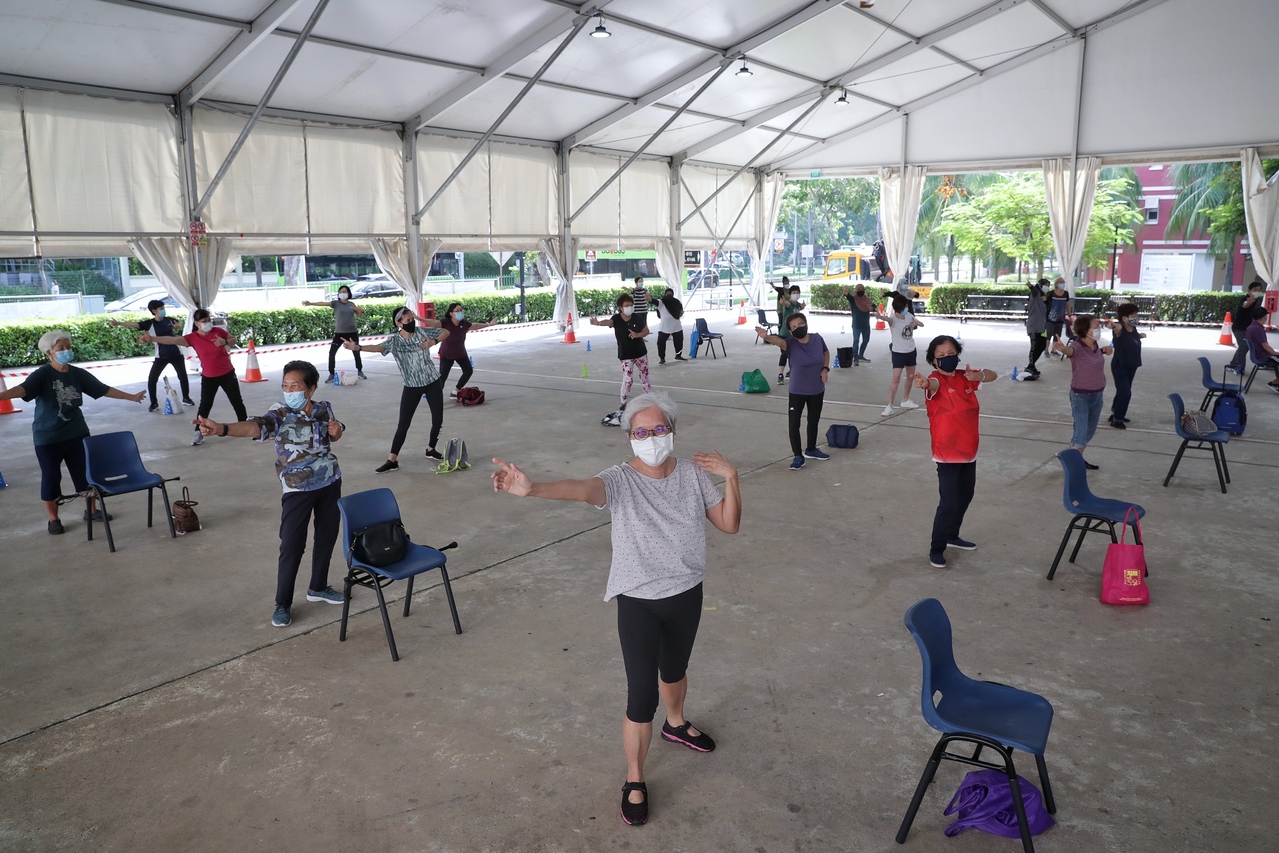Critical for S'pore to unlock 'longevity dividend' as people live longer: DPM Heng
Sign up now: Get ST's newsletters delivered to your inbox

The number of healthy years of people in Singapore has gone up from 66.6 years in 1990 to 73.9 years in 2019.
ST PHOTO: KEVIN LIM
Follow topic:
SINGAPORE - A 100-year human lifespan may well become the norm in developed countries as life expectancy continues to increase.
Yet, loneliness is a growing concern - the number of elderly people living alone has doubled to more than 60,000 in the past decade, compared to over 30,000 in 2012.
These trends mean that societies and individuals need to find ways to fund these longer lives, and to take a holistic approach to promote the well-being of the elderly, said Deputy Prime Minister and Coordinating Minister for Economic Policies Heng Swee Keat on Wednesday (Aug 25).
"The key question for all societies is, how we can support our people in leading meaningful and purposeful lives throughout their years," he said, adding that the current view that seniors "impose a crippling burden on society" is a very limiting mindset that needs to change.
In order to better unleash the potential of people to contribute as they age, "it is critical that we unlock the 'longevity dividend', which will in turn benefit people of all ages and societies around the globe", said Mr Heng.
He was giving the opening address at the first summit on the United States' National Academy of Medicine's Global Roadmap for Healthy Longevity at the National University Health System Tower block in Kent Ridge.
The road map, published in June, is the result of three years' work by an international commission of experts from multiple domains to envision a world where people live longer lives, and how they can best do so through a whole-of-society approach.
Professor John Eu-Li Wong, senior vice-president of Health Innovation and Translation at the National University of Singapore, co-chaired the commission with Professor Linda Fried, dean of the Mailman School of Public Health at Columbia University.
The report highlights areas where actions taken could significantly improve healthy longevity, including opportunities for meaningful engagement at every stage of life, social protection, financial security, physical environment, healthcare and lifelong learning.
Mr Heng told participants at the event that while people are living longer, the retirement age has stayed about the same, and added: "It is an unfortunate reality that ageist practices and attitudes are still commonplace."
While legislation can help, it is more important that employers recognise that offering opportunities to older workers is not charity, but rather, good practice for their companies.
"Research has found that older people in multi-generational teams tend to boost the productivity of those around them, and such mixed teams perform better than single-generation ones," noted Mr Heng.
While mindset change is always difficult, Mr Heng said it is possible, pointing to the large number of women in the workforce today, a scenario that would have been unthinkable a generation or two ago.
"I am hopeful that in the years ahead, we will similarly be able to tap on the full potential of seniors to contribute to our communities," he said.
According to the report, while people are living longer, they are also living more years in poor health.
A study by Duke-NUS and Nihon University found that lonely elderly adults in Singapore and Japan lived at least three years fewer than their peers. They also spent less of their remaining life healthy and active.
This is why Singapore aspires to build a city for all ages that is senior-friendly, where even those who are more frail can confidently go out and lead active lives, said Mr Heng.
Examples of this include the Silver Zone scheme, where neighbourhoods with a high density of the elderly have reduced vehicle speeds and two-stage crossings.
"It is not just about infrastructure, it is also about strengthening the social and community support for our seniors," he said.
Singapore has managed to make some progress on this front with healthy years going up from 66.6 years in 1990 to 73.9 years in 2019.
Getting people to stay healthy for longer is an ongoing effort and more needs to be done to alleviate the stresses around the last years of life, said Mr Heng.
He added that health is about physical, mental and social well-being: "Our aspiration is that even seniors with physical or cognitive frailty should have the confidence to continue to go out and lead active lives."

